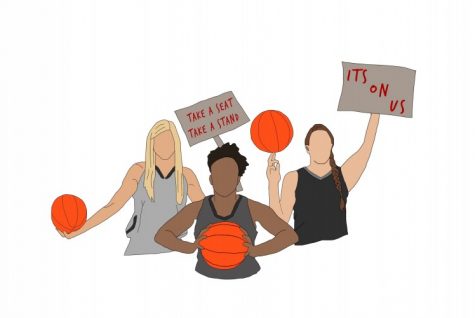From the Basement: Intersections of athleticism, activism
January 23, 2019

Fearing decreased viewership and increased fan backlash, sports organizations have often encouraged their athletes and franchises to refrain from making political statements. With league penalties in mind, many players must make a difficult choice: use their celebrity status to advocate for their beliefs or follow their respective organization’s standards.
The NFL seems to hope that teams will adhere to the former model, especially at league sponsored events, however, the owners of the Seattle Storm, the 2018 WNBA champion team, have taken a different approach to this dilemma.
“I don’t think you can be a part of women’s pro sports, or even women’s college sports at this point, and not realize, if you’re at all awake, that you’re on the front lines of trying to generate access to opportunity,” Seattle Storm Co-Owner Ginny Gilder said.
Gilder, along with fellow Co-Owners Lisa Brummel and Dawn Trudeau, has been vocal about combining activism, athleticism and business to create a unique management philosophy. This innovation in sports organization first became evident when, during a pre-game rally, the three women raised more than $50,000 for Planned Parenthood.
The previous year, the team held an auction to generate money for the OneOrlando fund in the wake of the Pulse Nightclub shooting. The team has also spoken out in support of the #BlackLivesMatter movement, with several Storm players following the lead of the Indiana Fever and kneeling during the national anthem.

With its athletes increasingly using WNBA games to protest, the WNBA itself began its 2018 season with the “Take a Seat, Take a Stand” campaign, donating part of ticket proceeds to various activist organizations. Examples include the Gay, Lesbian and Straight Education Network, which seeks to target homophobia in schools, and It’s On Us, which works to tackle issues of sexual assault.
Given that viewership was up 33 percent for the Seattle Storm’s clincher championship game this year, activism and athleticism clearly do not need to be mutually exclusive. Perhaps league organizers should consider the WNBA’s emerging model and encourage active franchise participation in social justice.






















Leave a Comment